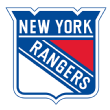The NHL trade deadline for the 2024-25 season is not until March 7, but teams have not waited until the last minute to make major moves.
For every significant trade that occurs during the season, you’ll find a grade for it here, including David Jiricek to the Minnesota Wild, and Jacob Trouba to the Anaheim Ducks.
Read on for grades from Ryan S. Clark and Greg Wyshynski, and check back the next time a big deal breaks.
Jump to a trade:
Trouba to ANA
Jiricek to MIN

The New York Rangers traded defenseman Jacob Trouba to the Anaheim Ducks, ending a tense few months of speculation about their captain’s future.
The Ducks sent defenseman Urho Vaakanainen and a conditional 2025 fourth-round pick to the Rangers for Trouba. Anaheim takes on all of Trouba’s contract, which carries an $8 million average annual value against the salary cap through the 2025-26 season.
The Rangers will receive either the Ducks’ or the Detroit Red Wings‘ fourth-round pick, depending on which one is lower in the draft order.

The marking period for this trade began on July 19, 2019. That’s when then-Rangers general manager Jeff Gorton signed defenseman Jacob Trouba to a seven-year, $56 million contract to avoid salary arbitration.
Despite being one of the league’s most effective defenseman at that point — which is why the Rangers acquired him from the Winnipeg Jets in the first place — many thought that Trouba’s $8 million annual cap hit was overcompensation, considering the bell curve of a physical defenseman’s effectiveness in the NHL. The Rangers certainly took that into account: That overcompensation bought them flexibility in the final two years of Trouba’s contract, which carried a no-movement clause from 2020-24 before switching to a 15-team no-trade clause.
That no-trade clause still gave Trouba some agency over his future, as the Rangers discovered last summer when his refusal to submit one early reportedly torpedoed a potential trade with the Detroit Red Wings. But it couldn’t protect him from the Rangers using their nuclear option, which is what ultimately led to Trouba’s trade to Anaheim.
Please recall when the Rangers placed forward Barclay Goodrow on waivers in June, clearing the last three years of his contract off their books when the San Jose Sharks claimed him in a prearranged move. There’s no question that GM Chris Drury pointed to that example and told Trouba, “This could happen to you.”
You could be on a rebuilding Chicago Blackhawks team that just fired their coach. Or the San Jose Sharks. Or the Red Wings, with whom you didn’t want to play last summer. Or shuffle back up to Canada, not a as a Winnipeg Jet but as a Montreal Canadien. Such was the waiver wire.
Or Jacob Trouba could select from the potential trade destinations placed in front of him, waiving his no-trade clause for one of them.
With that, the captain of the New York Rangers is now a member of the Anaheim Ducks.
So part of this grade goes to the Rangers front office in 2019, when Drury was an assistant GM, for having the foresight to create this pressure point. And part of it goes to Drury, who exerted that pressure to move Trouba’s cap hit off the books, remove an ineffective defenseman from his blue line and send a shock to the system of a struggling team.
The Rangers are 13-10-1 this season. They’re in a wild card. But they’ve lost six games in regulation out of their last seven. Drury was so displeased with what he saw that he put out a memo to 31 other NHL teams telling them he was open for business and mentioning Trouba by name.
Trouba’s been a liability all season. He’s in the negatives across the board analytically relative to his teammates, including a 47.5% expected goals percentage. He has just six assists in 24 games, skating to a minus-3. Even the one thing the Rangers used to depend on from Trouba — physicality — was down, as he averaged 4.87 hits per 60 minutes after averaging 7.81 last season.
Of course, it should be said that Drury basically made him a lame duck, and that has to impact his performance.
In the immediate term, the trade opens up ice time for Braden Schneider and Victor Mancini, two players the Rangers are eager to see develop.
(Vaakanainen, whom they received from Anaheim, is a spare part at this point, and was a healthy scratch for the Ducks this season.)
In the long term, the trade gives the Rangers some cap space to work with now and especially next season when the long-awaited new contract for star goalie Igor Shesterkin will kick in — assuming he eventually signs one.
Whether or not the roster shakeup goes beyond Trouba remains to be seen. Don’t forget, Chris Kreider‘s name was in that Drury memo, too.
But getting Trouba off the books and off the ice was something the Rangers had been attempting for months. With more than gentle nudge, he’s sailed to the Pacific.
Nothing like trading your captain through pitiless means to get a locker room’s attention.
0:52
Rangers trade Jacob Trouba to the Ducks
Check out some numbers behind Jacob Trouba’s time with the Rangers as he is traded to the Anaheim Ducks.

I don’t hate this from the Ducks’ perspective.
Trouba is a better defenseman than the majority of the blueliners on the Anaheim roster. That’s assuming some of his poor play was due to the Rangers basically standing in the doorway with his bags packed for six months, which will certainty weigh on a guy.
At least now he’s with a team that he begrudgingly picked, with a couple of former teammates (Ryan Strome and Frank Vatrano) and a general manager in Pat Verbeek who says kind things like “on the ice, he competes every shift, leads by example and is a presence on the blue line every night.”
Verbeek also called him “a big part of our future success,” and hopefully that means as a mentor to young defenseman rather than signing Trouba until he’s 37 when his contract runs out after the 2025-26 season. The Ducks have up-and-comers like Pavel Mintyukov, Olen Zellweger, Drew Helleson and Jackson LaCombe on the roster, with players like Stian Solberg and Tristan Luneau in the pipeline. Trouba can be a “lead by example” type, having excelled offensively and defensively during his career. After six seasons in Winnipeg and six more in New York, he’s seen some things.
It’s safe to say that Trouba is in decline at 30 years old. He might have been a liability with the Rangers, but the bar is set rather lower in Anaheim. This is an atrocious defensive team. The Ducks are giving up 3.14 expected goals against per 60 minutes at 5-on-5, last in the league and the only NHL team over three expected goals against on average this season. They earn only 45% of the shot attempts in a game, 31st in the NHL. No one gives up more high-dangers shot attempts (13.5 per 60 minutes) than Anaheim — although please note that the Rangers were right behind them (13.1).
The Ducks have prioritized physicality, and Trouba can bring that. The idea that Anaheim can roll out Radko Gudas and Jacob Trouba on the same defense should have Western Conference opponents already reaching for the Advil.
They didn’t give up anything for him. Even if Vaakanainen was playing, which he wasn’t, the Ducks were dealing from a position of depth. The fourth-rounder is expendable, given they had two. The $8 million salary cap hit shouldn’t impact them much next season: While Mason McTavish will need a new deal this summer, Leo Carlsson‘s big-ticket second contract won’t be until after Trouba’s expires.
Plus, if he finds his game in Anaheim and the Ducks aren’t in the playoff mix next season, they could always retain salary and flip Trouba at the 2026 trade deadline. He’s exactly the kind of defenseman who has value for contenders at the right price.
Verbeek said, “It’s rare you are able to acquire a player with Jacob’s experience, stature and ability.”
Despite this decline and the growing flaws in his game, that’s undoubtable true, and especially for this compensation. The Ducks need more adults in the room. They landed themselves an NHL captain, who can hopefully find more effectiveness in a place where he’s wanted. — Wyshynski

In need of a change, defenseman David Jiricek found one Saturday when the Columbus Blue Jackets traded the former No. 6 pick to the Minnesota Wild.
The Wild received Jiricek and a 2025 fifth-round pick, with the Blue Jackets receiving a top-five protected 2025 first-round pick, a 2027 second-round pick, a 2026 third-round pick, a 2026 fourth-round pick and defenseman Daemon Hunt.

Last season allowed the Wild to draw two conclusions about the state of their defense.
The first was that they appear to have a legitimate franchise cornerstone in Brock Faber, who finished second in Calder Trophy voting. The second was that the team needed to figure out how to continue to get younger on the back end, especially with injuries ravaging a unit that had quite a few players — Zach Bogosian, Jonas Brodin, Jon Merrill and captain Jared Spurgeon — all older than 30.
That process began in 2021 when they used one of their two first-round picks to select Winnipeg Ice defenseman Carson Lambos. They acquired Faber in 2022 in the Kevin Fiala trade with the Los Angeles Kings. In June, they used their first-round pick (No. 12) to draft University of Denver defenseman Zeev Buium. Now, they have added Jiricek, the sixth pick in the 2022 draft.
As for what this all means for this season?
Much of that could depend upon Jiricek. Part of what made him available in the first place was the belief that he was unhappy with his role in Columbus. He was averaging 11:11 in six games while logging less than 10 minutes over what became his final three contests before he was sent to the AHL.
Jiricek will remain in the AHL, where he will use his time with the Wild’s affiliate to push for a role at the NHL level. Jiricek is a 6-foot-4 puck mover, and those traits have come through in the AHL, where he’s scored 15 goals and 60 points in 88 games. This season, he has two goals and three points in four games.
Whether he can find a way to translate his AHL production to the NHL is the looming question. If he can, he’ll give the Wild another facilitator with size who could be trusted to play key minutes. Beyond that, he could give the Wild those minutes on his entry-level contract, which is important for a franchise that’s had to become adept at spending cap space because of the combined Zach Parise and Ryan Suter buyouts that currently cost $14.7 million but will fall to $1.66 million next season.
The Wild (15-4-4) were two points behind the Winnipeg Jets for the best record in the NHL and the Western Conference entering Saturday. They’re allowing the fewest goals per game in the NHL this season, the fewest high-danger scoring chances per 60 and rank in the top 10 in the fewest scoring chances allowed per 60.
Not only have they established consistency, but the Wild also have the depth to go with that continuity. Faber is one of three defensemen who have played in every game, while four of their defenseman have appeared in more than 16 games this season.
Maintaining that level means the Wild don’t have to be in a rush to call up Jiricek and can let him settle into their system. And if the Wild can remain in the hunt for a top seed, they’ve essentially added a one-time top-six pick for what will ultimately become a first-round selection that’s toward the bottom of the draft.

Moving on from a one-time top-10 pick such as Jiricek comes with the question about if a franchise has received or has come close to receiving a return of equal value.
It appears that Blue Jackets GM Don Waddell was able to achieve that by getting a sizable haul along with a defenseman who can play right now with Hunt.
At the time of the trade, the Blue Jackets (10-9-3) look as if they could go in a few directions this season. On Saturday, they were two points out of the final Eastern Conference wild-card spot while also being within five points of having the NHL’s worst record.
The fact Jiricek struggled to get minutes and was sent to the AHL before being traded shows that the Blue Jackets were comfortable with their dynamic in the interim. But how this could work out for them in the future is where it gets interesting.
Waddell’s time in charge of the Carolina Hurricanes saw the club rely upon the draft to build a roster that has since become one of the NHL’s perennial favorites to win the Stanley Cup. One of the ways the Hurricanes reached that destination was to have as many draft picks as possible.
With this trade, the Blue Jackets now have 27 draft picks over the next three seasons.
Another detail that could factor into the decision to move on from Jiricek is the defensive youth the Blue Jackets have on their NHL roster and in their farm system. Five of the seven defensemen on the Blue Jackets’ active roster are younger than 27. That does not include Hunt.
They also have youth in their system. They used one of their three first-round picks in 2021 to draft Corson Ceulemans. A year later, they used one of their two first-rounders to take Denton Mateychuk. Of course, the other player they drafted in the first round that year was Jiricek. They also used four of their six picks to draft defensemen in 2024, with the most notable being Charlie Elick, who went in the second round. — Clark


